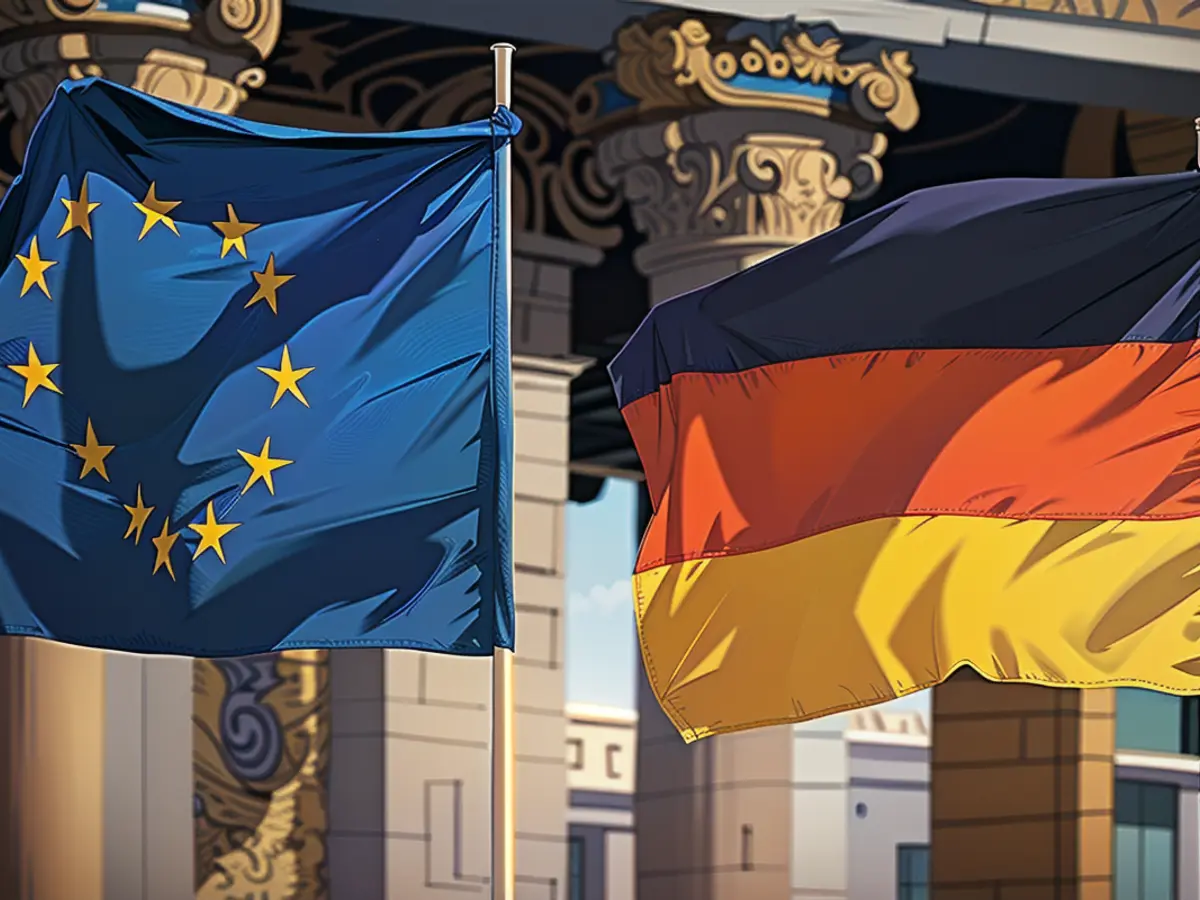Information on the European polls
From Direction to Decision in Europe: With more than 350 million people from 27 countries, the power and majority relations in the European Parliament can be determined in early June. Know the days and number of deputies for each country.
The focus is on: The upcoming European election, a series of national elections, is more than just filling the future 720-seat EU Parliament. Geopolitical changes could change the political climate and shape the future of the European Union.
This is the tenth EU-wide election: From crisis management to foreign policy, agriculture, climate protection, and dealing with future technologies, more and more decisions are being made at the EU level. The only directly elected organ of the European Union is the European Parliament.
Opinion polls show a possibility of a shift in power and support for right-wing parties in Europe. The key factor is how many eligible voters will actually vote with their democratic rights. According to an April 2024 Eurobarometer survey, 71% of eligible voters want to vote. This is 10% more than before the 2019 election, but the actual voter turnout in 2019 was only 51%.
The European Parliament is elected every five years. This time, voting starts on June 6th, with the initial vote in the Netherlands, followed by Ireland the next day. Latvia, Malta, and Slovakia vote on Saturday. Most EU member states polling begins on June 9th. The Czech Republic and Italy allow voting for two days.
Each country sends a predetermined number of deputies to the EU Parliament based on its population. Germany, with 83 million inhabitants, sends 96 deputies. France has 81 mandates, Italy 76, Spain 61, and Poland 53 seats. Estonia, home to 1.4 million residents, has a total of 7 representatives in Strasbourg.
The power of EU deputies has grown significantly in recent years: The EU Parliament is heavily involved in creating, debating, and deciding on regulations that directly impact citizens' everyday lives.
Alongside the Council of the European Council, where government representatives of member states are represented, the Parliament is the most important democratic legitimization source of the Union.
The voting procedure, age requirements, and counting are regulated on a national level. Transnational candidate lists do not exist for the European election. Citizens usually vote in their home country or their usual residence in the EU. Citizens with German nationality living in France can vote for French candidates there.
In Germany, the eligible voters total around 64.9 million. Of these, about 4.1 million are citizens from other EU countries. The voting age varies by country. In Germany, voters aged 16 and older can participate in the 2024 European election. This means that around 1.4 million 16- and 17-year-olds will vote in a nationwide election for the first time. Since the previous European election in 2019, up to 5.1 million potential first-time voters in Germany have reached voting age.
"Voting participation is the most important way for citizens to influence the European Union's politics," said Federal Election Commissioner Ruth Brand. In Belgium, Austria, and Malta, the minimum voting age is being lowered to 16 for the first time in 2024. In most other countries, EU citizens can only vote from the age of 18. Exception: Greece - the voting age is 17.
The different voting procedures create confusion: Familiar names can be found on the ballot paper. In Germany, a total of 34 parties and other political associations are allowed to participate in the European election in 2024. They will run on state lists with ten candidates in each one. Due to these regional differences, specific ballot papers have been prepared for each federal state.
In Germany, members of parliament are determined through proportional representation with list voting. This means that parties and other political associations present lists of candidates, either for a specific federal state or as a unified list for all federal states. As a result, the ballot papers in each federal state look different.
German voters have one vote each: They decide on their preferred list voting proposal, and that vote goes to the respective party or association. "In the end," says the Federal Election Commissioner, "each party and other political association will receive as many seats as their share of the total number of valid votes in Germany."
Nearly every European political party or group in the parliament has designated a EU-wide top candidate. This is aimed at giving the impression that the election campaign is more pan-European. After the voting, the national parties form factions within the European Parliament. This makes it easier to form majorities for political initiatives. The allocation of seats generally aligns with party lines and political views: For instance, the current European Commission President, conservative CDU politician Ursula von der Leyen, is the lead candidate for the European People's Party (EPP).
In 14 out of 27 EU member states, there are minimum vote thresholds that vary from 1.8% to 5.0%. Unlike the federal election in Germany, where no minimum threshold exists, smaller parties are factored in during vote tallying. Consequently, after the last European election in 2019, several small German parties, such as the Ecological Democratic Party and comedian Martin Sonneborn's party, made it into the European Parliament with just one or two representatives.
The list of potential candidates for the upcoming European election in Germany totals 1413 individuals - a record number for a European election in Germany. The vast majority of proposed candidates are male. The percentage of female candidates is underwhelming, at just 34.4%.
In the existing European Parliament, 39.8% of the legislators are women. Of the 14 German parties and political entities that gained seats following the 2019 European election, the one with the fewest votes needed about 240,000 votes to secure a spot, equaling approximately 0.7% of the total valid votes.
In 2014, voter turnout in Germany was 61.4%. There has been a clear rise in interest regarding the European election. In the previous European election in 2014, only 48.1% of eligible voters in Germany turned out to vote. Voter turnout in the EU rose from 42.6% in 2014 to 50.7% in the European election of 2019.
Read also:
- Year of climate records: extreme is the new normal
- Precautionary arrests show Islamist terror threat
- UN vote urges Israel to ceasefire
- SPD rules out budget resolution before the end of the year
The upcoming European elections in June will determine the composition of the EU Parliament, with more than 720 seats at stake in the EU Parliament, including those from the EU Parliament's newest members, such as Estonia with 7 representatives. These elections are crucial as they directly impact the lives of EU citizens, with the European Parliament heavily involved in creating, debating, and deciding on regulations.
The power of EU deputies has grown significantly in recent years, and the upcoming elections will once again showcase map data infographics, detailing the number of deputies for each EU country and the geopolitical changes that may shape the future of the EU Parliament and the EU as a whole. Opinion polls show a possibility of a shift in power and support for right-wing parties in Europe, making the EU Parliament elections a significant event in European politics.
Source:







